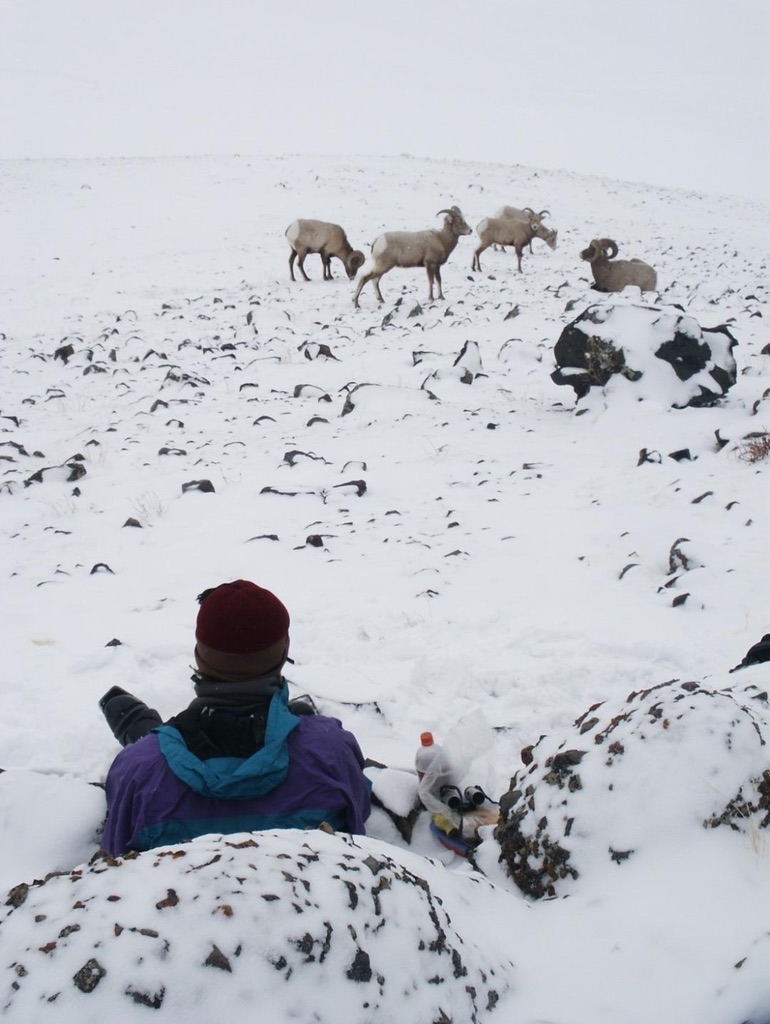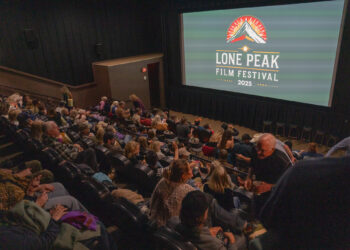
By Todd Wilkinson EBS ENVIRONMENTAL COLUMNIST
In his new book, Michael J. Yochim, former Yellowstone ranger and guide, takes us on a personal journey through America’s oldest national park to places he’ll never reach again.
“Essential Yellowstone: A Landscape of Memory and Wonder” is filled with keen insights, fine writing and, in a way, it functions as an existential roadmap for explorers seeking adventure in the modern world.
Under ordinary circumstances, I would highly recommend it, as if the book shines among others like it.
But on the dust jacket, the reason why “Essential Yellowstone” ranks instead as a heroic tome, delivering a lesson in grace and humility, becomes clear. We are informed that Yochim “retired from the National Park Service after being diagnosed with ALS. He wrote this book using only his eyes and assistive technology that tracks their movement on a computer screen.”
Just for a moment absorb that last part again. Yochim can’t walk or move his appendages. If a mosquito landed on his nose, he couldn’t swat it away; he can’t lift a morning cup of coffee to his lips and he can no longer utter a spoken word.
Yochim is, by his own acknowledgment, nearly incapacitated. He has a terminal illness, also called Lou Gehrig’s disease, that is mercilessly progressive, irreversible and has left him dependent upon the care of loved ones to keep him alive.

And yet, in “Essential Yellowstone,” Yochim takes us on hikes into the deepest Yellowstone outbacks, which reside farthest from most main highways in the Lower 48 states. He moves us by sharing his perspective about the meaning of wildness, he offers observations about natural history that span time and space, he emphasizes the cherished importance of good friends and, above all, he expresses his pure love for Yellowstone as both enigma and paradox.
Not only does Yochim painstakingly write tens of thousands of words, letter by letter, filling 300 pages, with his eyes, it is through his vision that we see his heart revealed.
Like the late theoretical physicist, cosmologist and author Stephen Hawking, who succumbed to ALS after dealing with the disease for years, Yochim shows us how the human mind is a powerful unconquerable thing and its brilliance transcends physical prowess.
I’ve been a fan of Yochim’s writing for a long while and we share affection for Yellowstone because we, like thousands of others, are part of an informal club of people who held down jobs there, either with the federal government or as concession employees.
Parts of Yochim’s book left me choked up as he tells the stories of trails and destinations he will never reach again, though in memory they live large. And I laughed out loud at passages where his wicked, self-deprecating wit refused to be shaded by his grim prognosis.
Reflecting on cutting bruin tracks and crossing paths with grizzlies, feeling the ground shake beneath his feet when backcountry geysers erupted, and hearing howls of wolves return to landscapes where the songs had once gone mute, Yochim summons us to let spirituality, whatever form it takes, back into our lives.
“Whatever the reward we come to realize that Yellowstone and other wild places are not the exception, but rather the authentic, the original, the real. We return for more, satisfying a deep-seated hunger within us, and in so doing, begin to connect with something visceral, something we have longed for,” he writes. “Through such experiences we can be transformed into wiser, more knowing and caring persons, ones that understand that, for many world religions, these connections are ultimately glimpses of the divine.”
In a recent email exchange, Yochim told me he is racing to finish a book about climate change that illustrates how it is transforming Yellowstone and other national parks. He knows it’s possible he may not live long enough to see it into print, yet it’s the one thing he can do to raise awareness and still make a difference.
Yochim has already achieved this with “Essential Yellowstone,” for it’s a read that will stay with you. Toward the end of this masterfully eloquent volume, Yochim reminds us to embrace the Yellowstone that remains his place of escape.
“Nature’s commonality and sometimes centrality in the world’s religions should not come as a surprise to anyone who has spent time in the wild, but especially in the Yellowstone wilderness,” he writes. “There, nature’s power, forces and interconnections are on full display, and the presence of grizzly bears and other large animals opens—or should open our eyes wider to them than in places that lack such creatures.”
Thank you, Mike Yochim and Riverbend Publishing; just as this fine book has given Yochim freedom to wander from the shackles, it liberates us, beckoning defenders of Yellowstone to comprehend what our own eyes don’t always see. That’s a rare gift and we are grateful.
Todd Wilkinson is the founder of Bozeman-based “Mountain Journal” and is a correspondent for “National Geographic.” He’s also the author of “Grizzlies of Pilgrim Creek” about famous Jackson Hole grizzly bear 399, which is available at mangelsen.com/grizzly.














